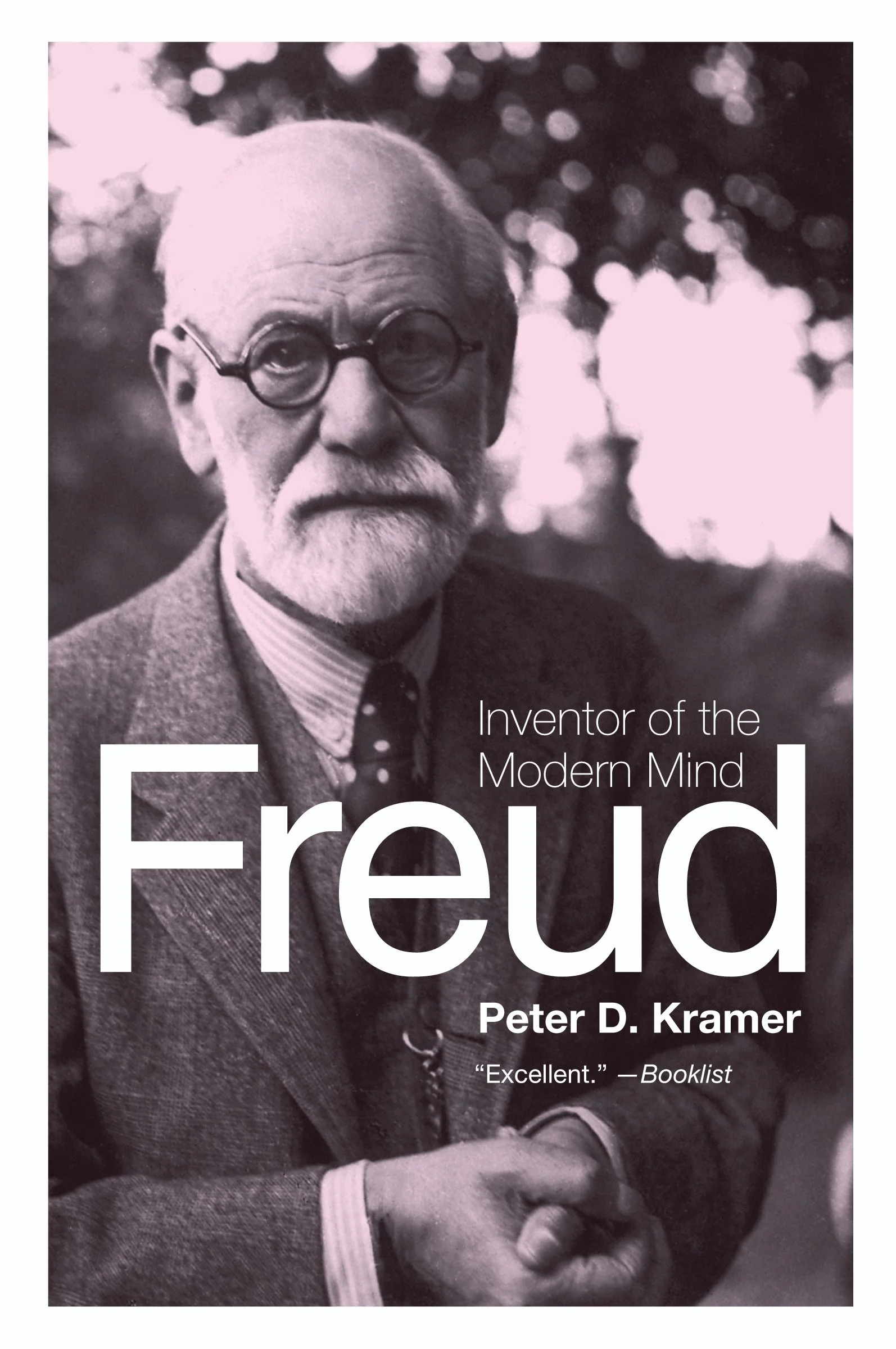Praise for Freud: Inventor of the Modern Mind
“Kramer’s study is a refreshing and thorough work that readers of all levels of familiarity with Freud’s work can appreciate.” —Publisher’s Weekly
“A generally sympathetic treatment, though also attentive to those many occasions when Emperor Freud wore no clothes. Kramer takes on the Godfather of psychoanalysis in this entry in the Eminent Lives series. The author's prose-clear, precise, jargon-free-is well-suited to the task . . . a clear and sometimes eloquent introduction to the life and thought of the world's first shrink." — Kirkus
“Psychiatrist Kramer chooses an aptly provocative title for this compact, sparkling biography in the “Eminent Lives” series.. . . this book opens a new perspective that will allow the best of Freud to float even as the bulk of his work sinks. Highly recommended. . .” — Library Journal * [starred review]
“[An] outstanding new biography of Freud” — New York Sun
“Peter Kramer, a practicing psychiatrist and Brown University professor of psychiatry, has written an eminently readable, eminently comprehensive study of the life and works of Sigmund Freud. . . . Freud is an intelligent - and feeling - reassessment of a man who still sets off critical fireworks at the mere mention of his name.” — Providence Journal
“. . . keeps Freud clearly in the biographical frame, while helping the reader understand current psychiatric practice. Kramer's statement that today ‘the patient is presumed to be injured, not conflicted’ is but one example of his ability to condense decades of scholarship and controversy into a single illuminating phrase that draws on his own extensive reading and clinical experience. . . . Trainees in the mental health professions will find it useful in helping them grasp Freud's thought and put it into perspective. The legions of students in the interpretive fields of the humanities—literature, art, cultural history—will also find it an excellent field guide to complex terrain.” — JAMA
“I have read many books by and about Freud but this is the most satisfying from a modern psychiatric perspective.” — Sounding Board, Oregon Health & Science University
“For an author, even of Peter Kramer's caliber and reputation, to take on a request to write yet another book about Freud (as his publisher's "Eminent Lives" series requested), would seem a bit risky. I did not expect Kramer to pull it off, and, when a friend wrote me that this book was full of new and intriguing material about how Freud had not really been what he has seemed to be — my first reaction was that it could not really be new material, or perhaps it was only new to those who had not read the work of those honest critics of Freud, who belatedly (decades after Freud's death) but not too recently (the honest critique of Freud began in the 1960s) had revealed what there was to know. I was pleasantly surprised: expecting little new, I found much I did not know . . . Like a novelist, Kramer excels in the telling details.” — Nassir Ghaemi, Metapsychology
“If you would like to get to know Freud but not invest an inordinate amount of time or energy in doing so, there is no better way to get to know him than by reading Peter Kramer’s Freud. . . . Kramer provides a readable, engaging biography of Sigmund Freud published by Eminent Lives. The book is just over 200 pages and its small size means that one can almost fit Freud’s entire life into one’s pants pocket. Kramer does a fine job of interweaving chronology and thematic elements so that the reader gets to know Freud much like one would get to know a new acquaintance.” — Psychiatric Services
Also available as a Kindle edition
“Part of Eminent Lives, a series of brief biographies of canonical figures by distinguished authors, this work is a brilliant match of subject and writer, offering Dr. Kramer, one of America's best-known psychiatrists, the opportunity to understand the ego and the id of Dr. Freud.” — Globe and Mail
“Brisk and vividly written . . . Kramer succeeds in reconciling the two Freuds -- the inventor of the modern mind and the false saint -- and that is a considerable achievement.” — Howard Gardner, Washington Post
“A brief, compelling reassessment of Freud by the author of Listening to Prozac. Although the great analyst was ‘more devious and less original than he made himself out to be,’ Kramer generously concludes that ‘the gradual revelation of a less straightforward less competent, less lovable Freud contains an affirmation of Freudian precepts’—particularly that "’what is hidden in people may not be admirable.’" — The Atlantic
